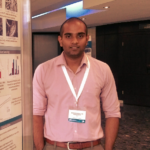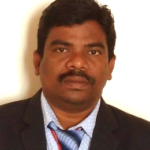5G Wireless Communications
This course is designed to give the students in-depth knowledge on 5G wireless communication including the fundamental concepts and different use cases of 5G.
UAV Communication
UAVs are expected to serve a critical role in future networks. The UAV Communication module will introduce the basic concepts of using UAVs to deploy communication networks.
Introduction to AI and Machine learning
With the proliferation of AI and ML in every aspect of engineering, it is essential to get an understanding about AI and ML. This module is conducted by Dr
Sérgio Duarte Correia from Cognitive and People-centric Computing Research Center, Portugal
Machine learning for embedded systems
Embedded systems are increasingly using machine learning for multitude of their tasks. Hence, this short module is designed to give hands on experience on using machine learning tools in embedded systems.
Software Testing
This module is conducted by ExactPro, a leading company in Fintech and software testing industry. Students will get to interact with the individuals who are actively engaged in the industry.
Embedded systems workshop
In order to give more hands on experience on building embedded systems, this workshop is delivered by the Thiagarajah college of engineering in India.












